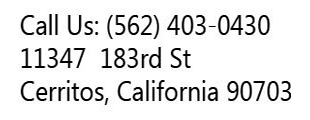At the point when a tooth is damaged or infected to the degree that a filling, crown, or other treatment is insufficient to alter it, that tooth may need to be extracted, or removed. Usually a general dental specialist can perform basic tooth extractions with a local anesthetic, while an oral (maxillofacial) specialist, for example, Dr. Gandhi, performs more perplexing extractions, for example, wisdom tooth evacuation.
There can be numerous reasons why teeth should be uprooted. A typical one is because of tooth decay rendering the tooth non-restorable. In some cases with child teeth we have to uproot them on the off chance that they are keeping the eruption of permanent teeth or have extensive cavity holes. In these circumstances there are levels of unpredictability with regards to removing a tooth. In our clinic, we perform most extractions yet sometimes with teeth that can't be easily accessed and require IV sedation, we may allude you to one of the very qualified oral specialists in our general vicinity.
Tooth Extractions Procedures:
What's going on here?
Tooth extraction is the expulsion of a tooth from its attachment in the bone.
What It's Used For
On the off chance that a tooth has been broken or harmed by rot, your dental specialist will attempt to fix it with a filling, crown or other treatment. Some of the time, however, there's an excess of harm for the tooth to be fixed. For this situation, the tooth should be separated. A free tooth likewise will require extraction on the off chance that it can't be spared, even with bone substitution medical procedure (bone join).
Here are different reasons:
A few people have additional teeth those square other teeth from coming in.
At times infant's teeth don't drop out so as to enable the changeless teeth to come in.
Individuals getting props may require teeth removed to make space for the teeth that are being moved into place.
Individuals accepting radiation to the head and neck may need to have teeth in the field of radiation extricated.
Individuals accepting disease medications may create tainted teeth on the grounds that these medications debilitate the resistant framework. Contaminated teeth may be extricated.
A few teeth may be removed on the off chance that they could turn into a wellspring of contamination after an organ transplant. Individuals with organ transplants have a high danger of contamination since they should consume medications that diminish or stifle the insusceptible framework.
Intelligence teeth, additionally called third molars, are frequently extricated either previously or after they come in. They regularly come in during late adolescents or mid-20s. They should be evacuated on the off chance that they are rotted, cause torment or have a blister or disease. These teeth regularly stall out in the jaw (affected) and don't come in. This can bother the gum, causing agony and growing. For this situation, the tooth must be expelled. On the off chance that you need each of the four intelligence teeth expelled, they are normally taken out simultaneously.
On the off chance that you hope to have treatment with intravenous medications called bisphosphonates for an ailment, make certain to see your dental specialist first. On the off chance that any teeth should be extricated, this ought to be done before your medication treatment starts. Having a tooth extraction after bisphosphonate treatment builds the danger of osteonecrosis (passing of bone) in the jaw.
Arrangement
Your dental specialist or oral specialist will take an X-beam of the region to help plan the most ideal approach to evacuate the tooth. Make certain to give your full therapeutic and dental history and a rundown of all prescriptions you take. This ought to incorporate both remedy and over-the-counter medications, nutrients, and enhancements.
In the event that you are having knowledge teeth evacuated, you may have an all-encompassing X-beam. This X-beam snaps a photo of the entirety of your teeth without a moment's delay. It can show a few things that help to manage an extraction:
The relationship of your insight teeth to your other teeth
The upper teeth's relationship to your sinuses
The lower teeth's relationship to a nerve in the jawbone that offers to feel to your lower jaw, lower teeth, lower lip, and jawline. This nerve is known as the second rate alveolar nerve.
Any contaminations, tumors or bone ailment that might be available
A few specialists endorse anti-infection agents to be taken when medical procedures. This training fluctuates by the dental specialist or oral specialist. Anti-microbials are bound to be given if:
You have the disease at the hour of medical procedure
You have a debilitated invulnerable framework
You will have a long medical procedure
You have explicit ailments
You may have intravenous (IV) anesthesia, which can run from cognizant sedation to general anesthesia. Assuming this is the case, your primary care physician will have to give you guidelines to pursue. You should wear garments with short sleeves or sleeves that can be moved up effectively. This permits access for an IV line to be put in a vein. Try not to eat or drink anything for six or eight hours before the methodology.
In the event that you have a hack, stuffy nose or cold as long as seven days before the medical procedure, call your primary care physician. The person might need to evade anesthesia until you are over the virus. On the off chance that you had queasiness and retching the night prior to the technique, call the specialist's office before anything else. You may require an adjustment in the arranged anesthesia or the extraction may be rescheduled.
Try not to smoke upon the arrival of medical procedures. This can expand the danger of an agonizing issue called dry attachment.
After the extraction, somebody should drive you home and remain there with you. You will be given post-medical procedure guidelines. It is significant that you tail them.



